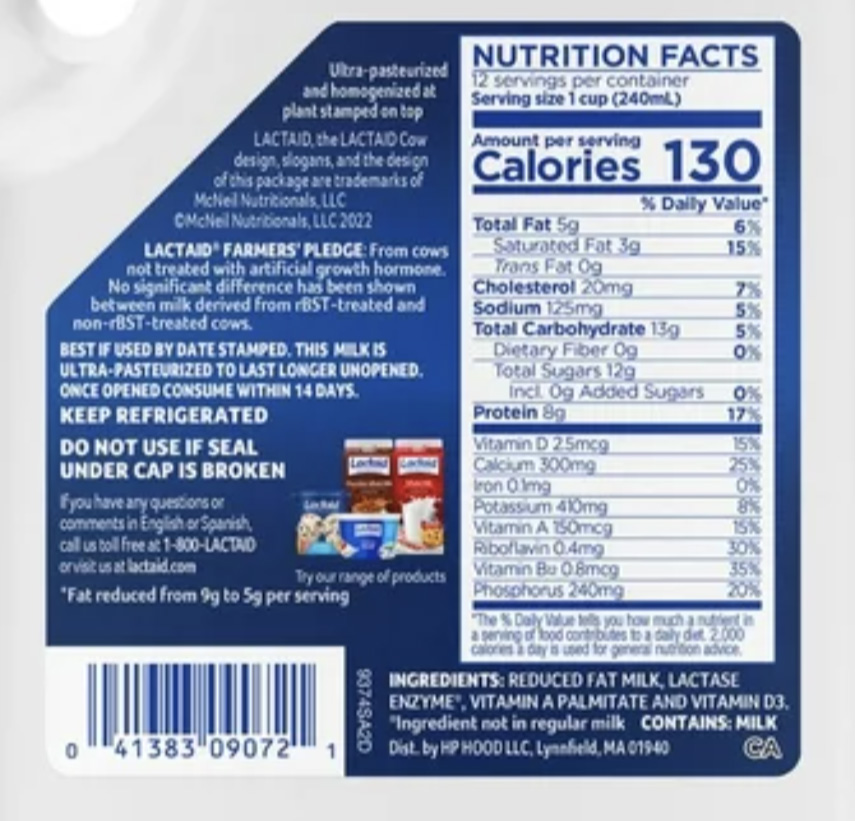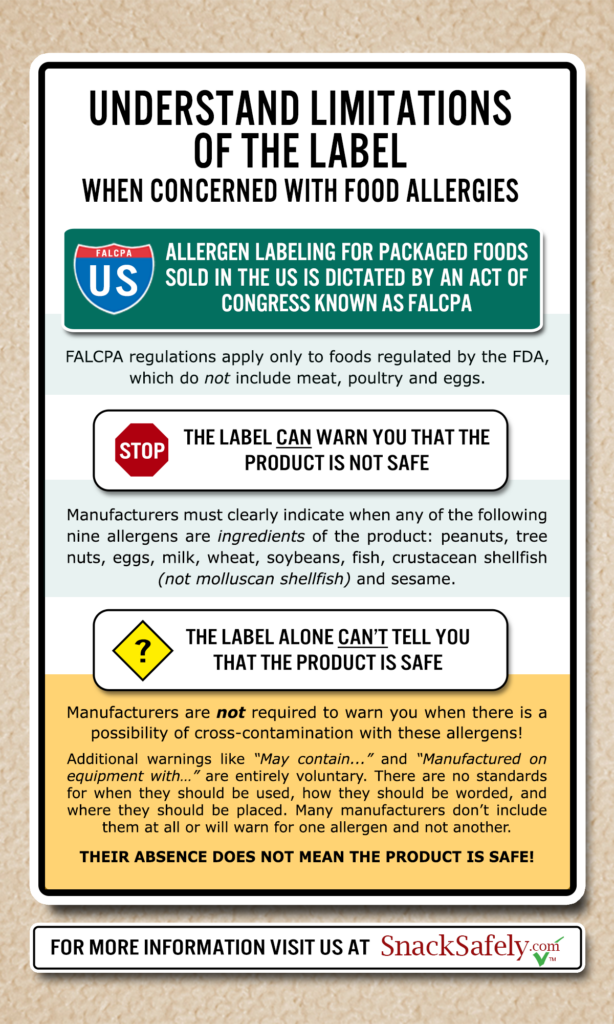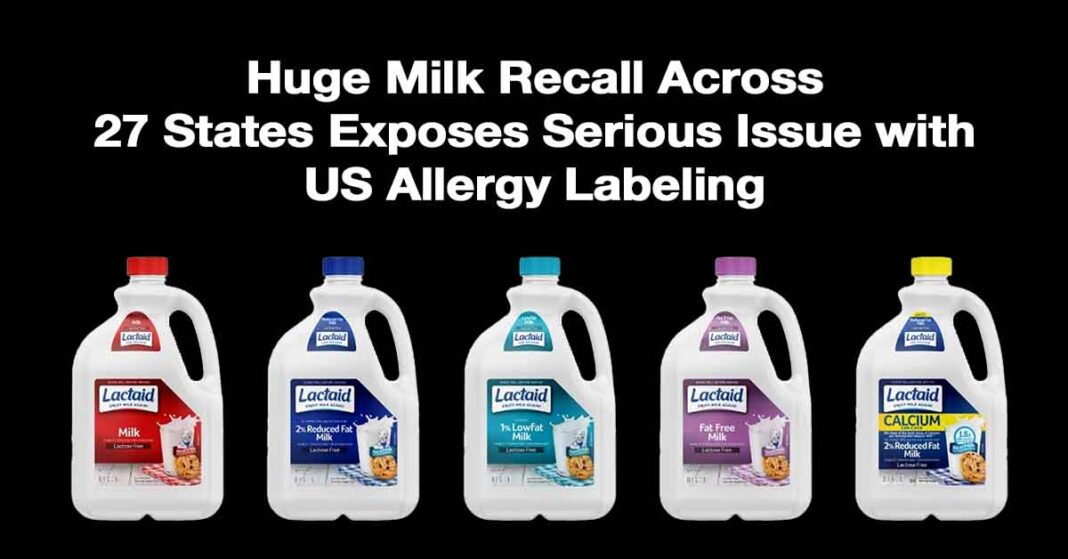HP Hood, the huge dairy conglomerate, has announced a recall of select units of their 96oz refrigerated Lactaid brand milk due to possible contamination with almonds.
The recall affects products shipped from September 5-18 to retailers and wholesalers in 27 states, including AL, CO, CT, FL, GA, IA, IL, IN, KS, KY, LA, MD, MI, MN, MO, MS, NC, NE, NJ, NY, OH, OK, PA, TX, VA, WI, and WY.
The company states: “people who have an allergy or severe sensitivity to almonds may run the risk of serious or life-threatening allergic reaction if they consume these products.”
For more information on which units were recalled, visit the FDA site.
To understand how this recall exposes a breakdown in US allergen labeling, let’s look at the label:

Note that the label does not contain a warning that cross-contact with almonds is possible despite the fact that Hood also manufactures the Almond Breeze line of almond milk. While we can’t say with certainty that the products are made in the same facilities, we can assume the cross-contact occurred somewhere at some shared component of production.
If you assumed warnings like “May contain traces of peanuts” or “Manufactured on equipment that also processes soy” are mandatory, you would be mistaken.
Precautionary Allergen Labeling (PAL) warnings, as they are known in the industry, are entirely voluntary and not mandated by the US Food and Drug Administration (FDA). The FDA has no say over when they should be used, where they should appear, or how they should be worded. Some manufacturers include them, many don’t, and others may warn for one allergen and not another.
PAL can warn you that a product is not safe for your allergy, but you can’t assume the absence of such a warning means the product is safe.
Here’s a graphic summarizing the issue:

To understand definitively whether a product is safe from your allergen of concern, you must call the manufacturer and ask them directly.
When a Manufacturer Says ‘Trust Us’ Regarding Allergens





